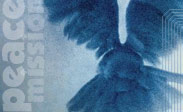


   |
|
Aung San Suu Kyi - Burma
Year: 1991 Nobel Peace Prize Cause: Biography Daw Aung San Suu Kyi was born in Rangoon, Burma, on June 19, 1945. She is the daughter of Daw Khin Kyi, Burma's only woman ambassador (to India and Nepal), and late national leader General Aung San, the architect of Burma's independence, who was assassinated in Rangoon on July 19, 1947, along with six members of his pre-independence cabinet. Daw Aung San Suu Kyi was educated in Rangoon until the age of 15 and continued her studies at Delhi University when she accompanied her Ambassador mother to New Delhi. She completed her BA in philosophy, politics, and economics at St. Hugh's College, Oxford University, and was elected Honorary Fellow in 1990. From 1969 to 1971, Daw Aung San Suu Kyi was the Assistant Secretary, Advisory Committee on Administrative and Budgetary Questions, United Nations Secretariat, New York. In 1972, Daw Aung Suu Kyi worked as the Research Officer at the Ministry of Foreign Affairs, Bhutan, and got married to a British scholar Dr. Michael Aris. Daw Aung San Suu Kyi has two sons, Alexander, born in London (1973), and Kim in Oxford in 1977. She studied at the Center of Southeast Asian Studies, Kyoto University, as a visiting scholar (1985-86). In 1987, Daw Aung San Suu Kyi completed her fellowship at the Indian Institute of Advanced Studies, Simla. In 1988, Daw Aung San Suu Kyi returned to Burma to attend to her ailing mother. When nationwide mass demonstrations for democracy started in August, Daw Aung San Suu Kyi took a leading role in the movement, addressing half a million people at the famous Shwedagon rally on 23 August. In 1988, the National League for Democracy (NLD) was founded with Daw Aung San Suu Kyi as general secretary following an announcement by the military, which took control of the country in a 18 September coup, that "fair and free" elections would be held on May 27 1990. In asserting control, the military gunned down hundreds of demonstrators and formed the State Law and Order Restoration Council. Following the coup and until July 1989, Daw Aung San Suu Kyi as NLD leader delivered over a hundred public addresses, encouraging people to fight for their rights despite their fears, and extensively toured the whole country, including Rangoon, Pegu, Magwe, Sagaing, Mandalay, Moulmein, Tavoy, Mergui, Pakkoku, Taunggyi, Kyaukpadaung, Monywa, Myinmu, Myitkyina, and so forth. In 1989, the military placed Daw Aung San Suu Kyi under house arrest. Amnesty International declared Daw Aung San Suu Kyi a prisoner of conscience. (Under pressure from the junta and as a move to prevent the junta from using legal loopholes to ban the party, the NLD announced Daw Aung San Suu Kyi was no longer the general secretary of the party). Despite her continuing detention, and the arrest of other NLD leaders, the party won the election by a landslide, securing 82 percent of the seats, but the military junta refused to honor the election results. Suu Kyi's arrest and confinement, which ended after 6 years in July 1995, drew national and international attention to the situation in Myanmar. She refused military offers that would allow her to leave the country because she would not be allowed to return. While under house arrest, Suu Kyi was awarded the Sakharov Prize for Freedom of Thought in 1990 and the Nobel Peace Prize in 1991. After her release Suu Kyi continued the struggle for democracy in Myanmar despite being barred from leading the NLD by the military government. The military increasingly restricted Suu Kyi's movements during 1996 as it cracked down on NLD meetings and other activities. She was banned from traveling outside Yangon, but she defied the order and was again put under house arrest in September 2000. Suu Kyi was released from house arrest a second time in May 2002. The military government indicated the release was unconditional and that Suu Kyi was free to pursue her political activities as leader of the NLD. Related Links |